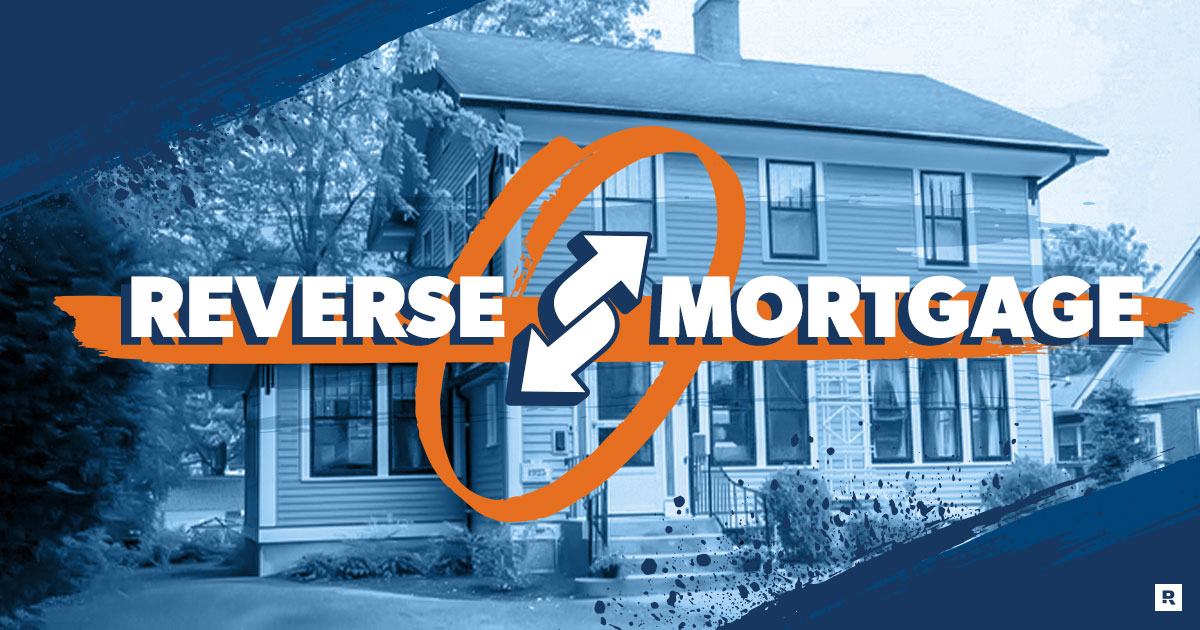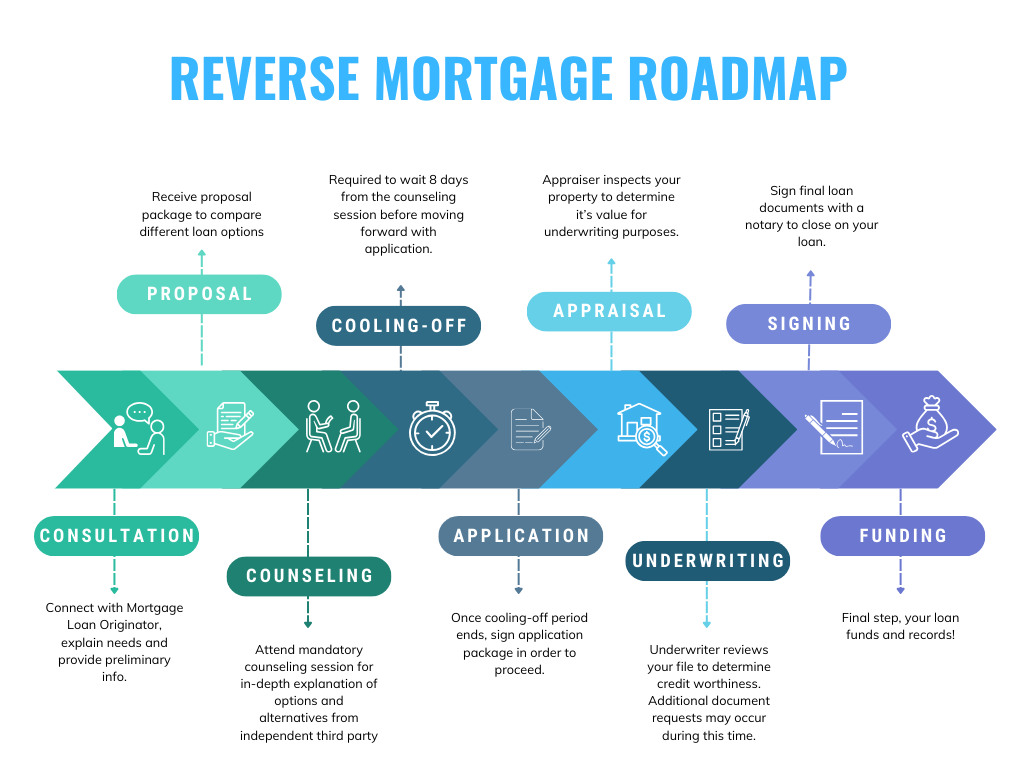Why More Homeowners Are Deciding to Purchase Reverse Mortgage
Why More Homeowners Are Deciding to Purchase Reverse Mortgage
Blog Article
Empower Your Retirement: The Smart Method to Acquisition a Reverse Home Mortgage
As retirement techniques, numerous individuals seek efficient techniques to boost their monetary freedom and wellness. Among these techniques, a reverse home loan becomes a feasible option for home owners aged 62 and older, permitting them to tap right into their home equity without the need of regular monthly payments. While this economic tool supplies a number of benefits, including enhanced cash money circulation and the prospective to cover essential expenditures, it is crucial to understand the intricacies of the application process and essential considerations entailed. The following actions might expose exactly how you can make an educated decision that could considerably influence your retired life years.
Comprehending Reverse Home Loans
Comprehending reverse home loans can be vital for house owners seeking monetary adaptability in retirement. A reverse home loan is a financial product that allows eligible property owners, usually aged 62 and older, to transform a part of their home equity right into cash money. Unlike typical home mortgages, where borrowers make month-to-month payments to a lender, reverse mortgages enable homeowners to receive payments or a round figure while keeping ownership of their property.
The quantity available via a reverse mortgage depends upon several elements, consisting of the house owner's age, the home's worth, and existing rate of interest. Notably, the funding does not need to be settled up until the home owner offers the home, vacates, or passes away.
It is important for possible consumers to comprehend the ramifications of this economic product, consisting of the effect on estate inheritance, tax obligation factors to consider, and ongoing obligations connected to residential property maintenance, taxes, and insurance policy. Additionally, counseling sessions with accredited professionals are commonly called for to make certain that debtors fully understand the terms of the finance. Overall, a thorough understanding of reverse home loans can empower property owners to make informed choices about their monetary future in retired life.
Advantages of a Reverse Home Mortgage
A reverse mortgage provides a number of compelling advantages for eligible house owners, particularly those in retired life. This economic tool permits seniors to convert a section of their home equity right into money, offering crucial funds without the need for monthly home loan payments. The cash acquired can be used for different purposes, such as covering clinical expenditures, making home enhancements, or supplementing retirement revenue, therefore improving total financial flexibility.
One significant advantage of a reverse home mortgage is that it does not require payment until the homeowner moves out, offers the home, or passes away - purchase reverse mortgage. This attribute enables senior citizens to preserve their way of living and meet unforeseen prices without the worry of month-to-month settlements. Furthermore, the funds obtained are typically tax-free, allowing house owners to use their cash money without anxiety of tax obligation implications
Moreover, a reverse home mortgage can supply tranquility of mind, knowing that it can function as an economic security web throughout difficult times. Property owners also keep ownership of their homes, ensuring they can continue staying in a familiar environment. Inevitably, a reverse home mortgage can be a critical funds, encouraging retired people to manage their finances properly while enjoying their gold years.
The Application Process
Navigating the application process for a reverse home mortgage is a crucial step for property owners considering this monetary alternative. The initial stage includes evaluating eligibility, which commonly needs the home owner to be a minimum of 62 years old, own the residential property outright or have a low mortgage balance, and inhabit the home as their primary residence.
Once qualification is verified, home owners need to undertake a counseling session with a HUD-approved therapist. This session guarantees that they completely understand the ramifications of a reverse home loan, including the responsibilities involved. purchase reverse mortgage. After completing counseling, candidates can continue to collect necessary documentation, consisting of proof of revenue, properties, and the home's value
The following step entails sending an application to a lender, who will certainly examine the financial and building certifications. An assessment of the home will additionally be conducted to determine its market price. If accepted, the loan provider will certainly provide lending terms, which need to be reviewed carefully.
Upon approval, the closing process adheres to, where last documents are signed, and funds are disbursed. Recognizing each phase of this application procedure can considerably improve the home owner's self-confidence and decision-making concerning reverse home mortgages.

Key Factors To Consider Before Getting
Investing in a reverse home loan is a considerable economic choice that requires cautious factor to consider of a number of key variables. Reviewing your financial needs and objectives is equally vital; determine whether a reverse mortgage aligns with your long-lasting plans.

Moreover, examine the influence on your current way of life. A reverse mortgage can influence your eligibility for particular federal government benefits, such as Medicaid. Look for specialist support. Consulting with an economic look what i found consultant or a housing therapist can offer valuable insights customized to your individual conditions. By thoroughly evaluating these factors to consider, you can make a more informed decision concerning whether a reverse mortgage is the best monetary technique for your retirement.
Taking advantage of Your Funds
When you have protected a reverse home mortgage, effectively taking care of the funds ends up being a top priority. The adaptability of a reverse home mortgage enables property owners to make use of the funds in various means, yet strategic planning is necessary to optimize their advantages.
One vital technique is to develop a budget that describes your monetary objectives and regular monthly costs. By identifying required expenditures such as healthcare, home taxes, and home upkeep, you can assign funds accordingly to make sure long-term sustainability. In addition, take into consideration making use of a section of the funds for investments that can produce revenue or value in time, such as common funds or dividend-paying supplies.
An additional important facet is to preserve a reserve. Establishing apart a get from your reverse home loan can help cover unforeseen prices, giving tranquility of mind and monetary stability. Furthermore, seek advice from a monetary expert to explore possible tax obligation ramifications and how to incorporate reverse home loan funds into your total retirement strategy.
Inevitably, sensible monitoring of reverse mortgage funds can improve your monetary security, enabling you to appreciate your retired life years without the tension of economic uncertainty. Careful preparation and educated decision-making will make certain that your funds function properly for you.
Conclusion
In conclusion, a reverse home loan offers a feasible monetary strategy for seniors looking for to boost their retirement experience. By transforming home equity into easily accessible funds, individuals can resolve essential costs and protected added financial sources without incurring regular monthly payments.
Understanding reverse mortgages can be critical for homeowners looking for economic flexibility in retired life. A reverse mortgage is view it now a financial item that permits qualified homeowners, usually aged 62 and older, to transform a section of their home equity right Homepage into money. Unlike conventional home mortgages, where borrowers make regular monthly payments to a lending institution, reverse mortgages allow homeowners to get payments or a swelling amount while keeping possession of their residential property.
In general, a detailed understanding of reverse home mortgages can encourage homeowners to make educated choices regarding their financial future in retired life.
Seek advice from with a financial expert to explore feasible tax ramifications and just how to incorporate reverse home loan funds into your total retired life method.
Report this page